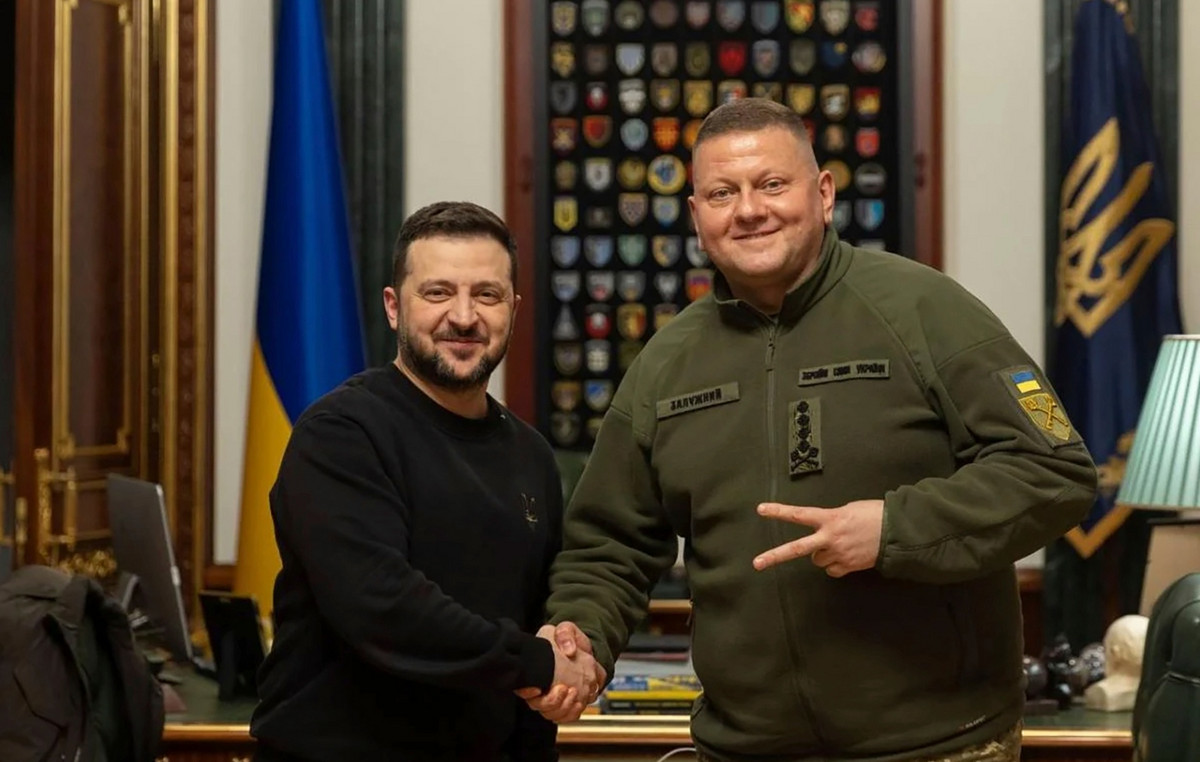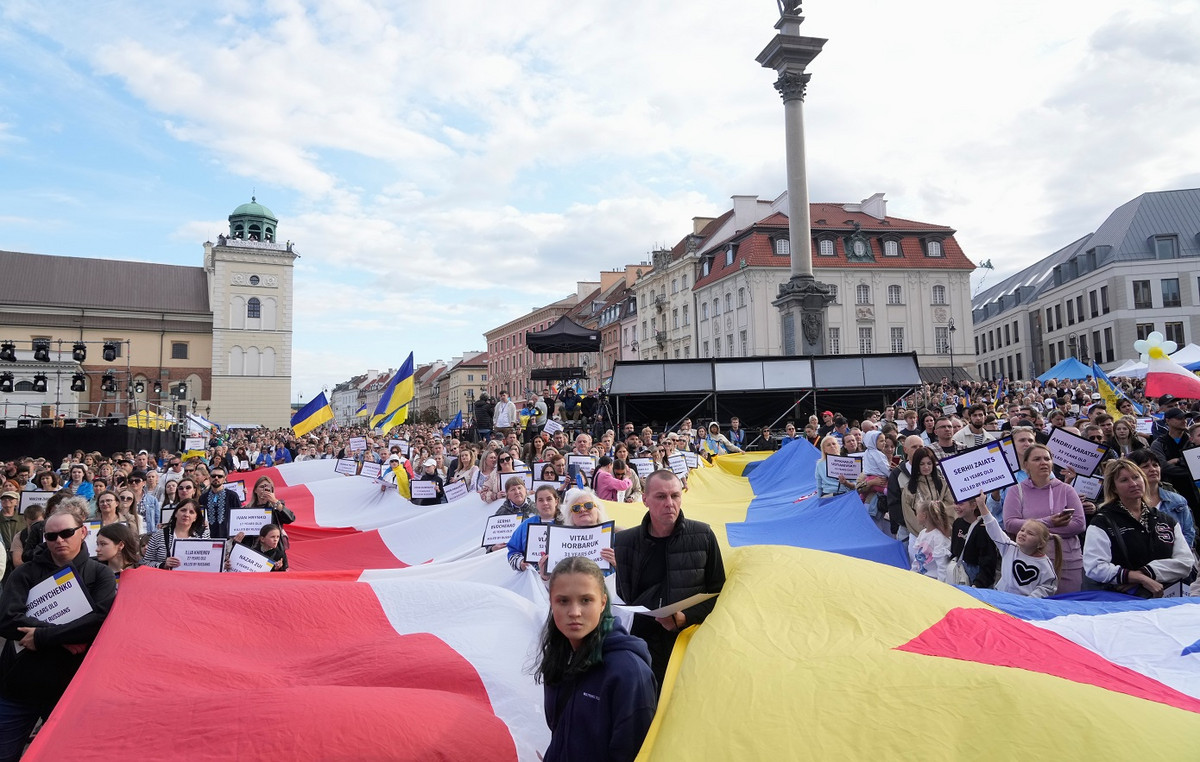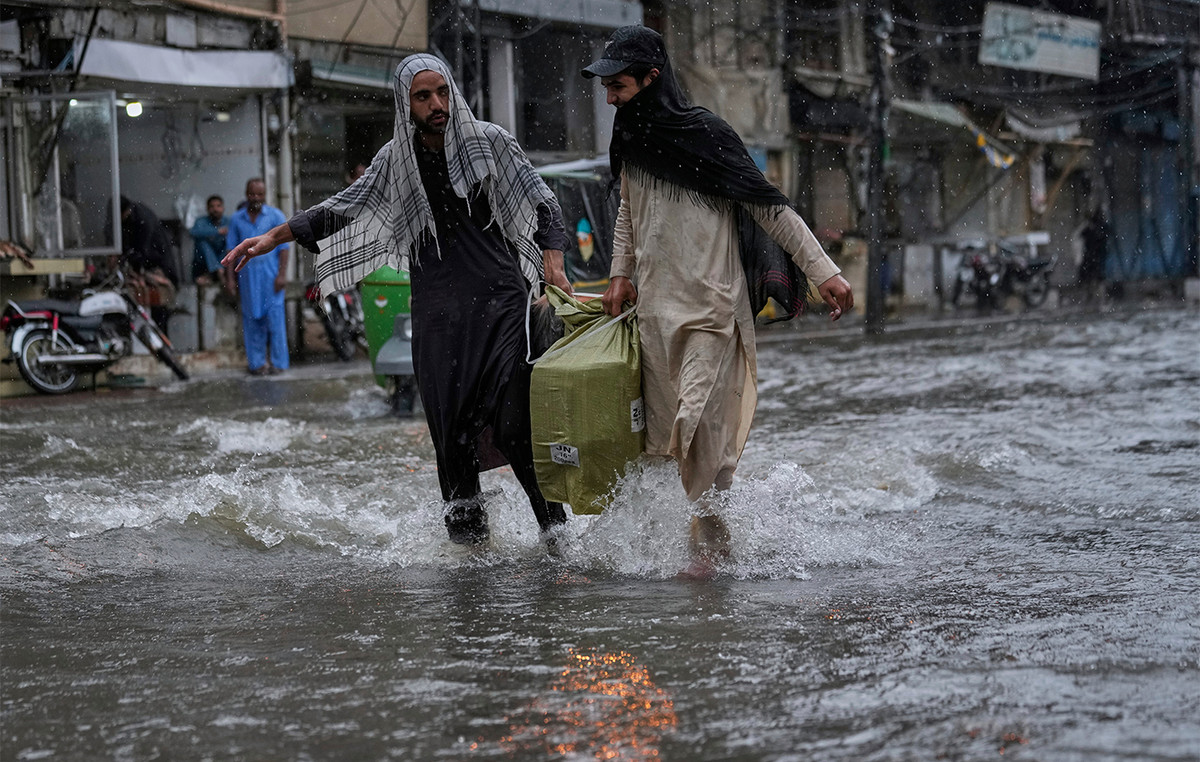For leaders across the West, Vladimir Putin's inevitable landslide victory in an election without a true opposition was a reminder of his tight grip on Russia's political arena as his war against Ukraine rages on. But Chinese leader Xi Jinping, and other leaders who benefit from Putin's rejection of a Western-led global order, will be cheering his victory.
Partial results reported by Russia's electoral authority as of Sunday night indicated a predictably large victory for the Kremlin leader in the three-day, stage-managed election, the outcome of which was a foregone conclusion.
Xi has staked a lot on his relationship with Putin since the start of the Kremlin's war more than two years ago, refusing to back away from the “boundless” partnership he declared with the Russian leader weeks before the invasion, while strengthening trade, security and diplomatic ties.
China paid a price for this. Although he claims neutrality, his refusal to condemn the invasion, as the US and its allies joined forces to impose sanctions on Russia, has aroused European suspicion about his motivations. It also drew attention to Beijing's designs on Taiwan's self-governing democracy. An annual NATO report released on Thursday reflected the bloc's tough line on China, with alliance chief Jens Stoltenberg saying Beijing “does not share our values” and “challenges our interests” while pointing to its growing alignment with Moscow.
But China's stance has allowed Xi to remain focused on deeper goals: He sees Putin as a crucial partner in facing rising tensions with the US and in reshaping a world he believes is unfairly dominated by rules and values set by Washington and its allies. A stable relationship with Moscow also allows Beijing to focus on other areas of concern, such as Taiwan and the South China Sea.
“Xi sees Putin as a genuine strategic partner,” said Steve Tsang, director of the SOAS China Institute at the University of London, ahead of the Russian election results, adding that anything less than a landslide victory for Putin would be “a disappointment” for Beijing.
And Xi, who has centralized control over his own nation like no Chinese leader since Mao Zedong, will not be alone among leaders applauding Putin's new grip on power.

North Korea's Kim Jong Un recently met with Putin in Russia's Far East during a rare foreign trip that Washington says focused on Moscow buying munitions from Pyongyang.
For Kim, this tightening bond is a major opportunity to shore up his struggling economy as he continues weapons development in the face of increased coordination between the US and South Korea.
A government battered by sanctions in Iran, which has been expanding its cooperation with Russia and supplying drones and ammunition, also gains from the continuation of the Putin era.
Even India, while strengthening ties with the US and calling for peace in Ukraine, has benefited from continued exchanges with Russia, especially through the purchase of discounted oil.
Other governments across the Global South have also sought to strengthen partnerships with Russia, even as they support peace in Ukraine and have suffered economic impacts from the war.
Alternative world order
Although the Russian election was not contested, Putin's ability to maintain his iron grip on power and get to this point without a defeat in Ukraine has not been a sure bet.
The Russian leader resisted an apparent miscalculation that what his government still calls a “special military operation” in Ukraine would be a quick success. He faced a challenge from the late warlord Yevgeny Prigozhin, who launched a brief but failed rebellion, and Western sanctions that cut off Russia's economy from much of the global market.
In response, Putin has increased repression and further clamped down on dissent across the country – including the Kremlin's most charismatic and prominent domestic critic, Alexei Navalny, who died in an Arctic prison last month.
Now, as the Russian leader emerges ready to continue for at least another six years, Putin presides over an economy that survives sanctions and a battlefield where his opponent has yet to see a decisive breakthrough. Meanwhile, there are emerging signs of fatigue, particularly from the United States, where a presidential election in November could reverse American support for Ukraine.
A lot can still change in war. But for countries that have remained close to Putin or avoided U.S.-led efforts to isolate him, his victory guarantees the stability of their ties with Russia — and a growing group of vehicles for non-Western alignment.
Russia is set to host an annual summit of the BRICS group of major developing economies as its president this year. The group, since 2011 made up of Brazil, Russia, India, China and South Africa, almost doubled in size at the beginning of this year to also include Iran, the United Arab Emirates (UAE), Ethiopia and Egypt.
The BRICS are seen as developing countries' answer to the G7, and their summit scheduled for October in Kazan, Russia, is likely to underline the stark difference between the two groups' sensibilities. In 2014, the G7 countries expelled Russia from what was then a G8 following its 2014 invasion of Crimea and abandoned their planned summit that year in Sochi.

There are a number of reasons why Putin is viewed differently in some parts of the world than in the West: the rise of middle powers that resent US domination of international affairs; the itch for a world order that does not disdain authoritarians or repressive states; or pure economic practicality for economies striving to develop.
US support for Israel, especially amid the current devastation in Gaza, has been a key point of alienation for many of these nations and China's prominent criticism of how Palestinians are treated has resonated across much of the Global South.
Putin, in turn, painted the BRICS as part of a growing movement that eclipses the established order, including in terms of economic weight.
“There is no escaping this objective reality, and it will remain so no matter what happens next, including in Ukraine,” Putin said during his speech late last month.
Putin then highlighted a vision he will likely want friend and foe alike to consider as he enters his new term: “No lasting international order is possible without a strong and sovereign Russia.”
A vigilant Beijing
But that doesn't mean that countries linked to Moscow aren't also watching the conflict in Ukraine carefully. This may be especially true for China, Russia's most powerful strategic partner.
Beijing has already reaped significant benefits from the war and continues to do so — as long as it is not biased towards a Russian defeat.
Chinese buyers have surpassed Moscow's record levels of crude oil in 2023, while exports of items such as cars and household electronics to Russia have expanded since the invasion, boosting trade to a record and boosting yuan-denominated Chinese transactions.
Xi has used the war in Ukraine as a platform to launch his own, if vague, alternative system for global security, while a diluted US government focus is good news for China.
Beijing, however, says it is working “tirelessly” to end the conflict as it seeks to carve out an image as a peacemaker. He sent special envoy for Eurasia Li Hui twice to Russia, Ukraine and other parts of Europe to promote a negotiated end to the conflict, the second of which concluded last week.
Chinese foreign policy thinkers such as Wang Yiwei of Renmin University say Beijing is worried about nuclear escalation – a threat recently raised by Putin – and the potential for more European countries to become directly involved in the war. “How to avoid escalating the conflict, that is Li Hui’s special concern this time,” he told CNN.
But Li, a former ambassador to Russia, and other Chinese officials are seen in much of Europe as merely representing a plan whose outcome would benefit Putin. This is in line with European views on Beijing's position since the early days of the war, when it insisted that the “legitimate security concerns” of all sides must be resolved.
For now, as pressure from around the world to end the conflict grows, this weekend's election results will likely only reinforce the view in Beijing – and some other non-Western capitals – that they were right to support Putin.
Source: CNN Brasil
Bruce Belcher is a seasoned author with over 5 years of experience in world news. He writes for online news websites and provides in-depth analysis on the world stock market. Bruce is known for his insightful perspectives and commitment to keeping the public informed.







